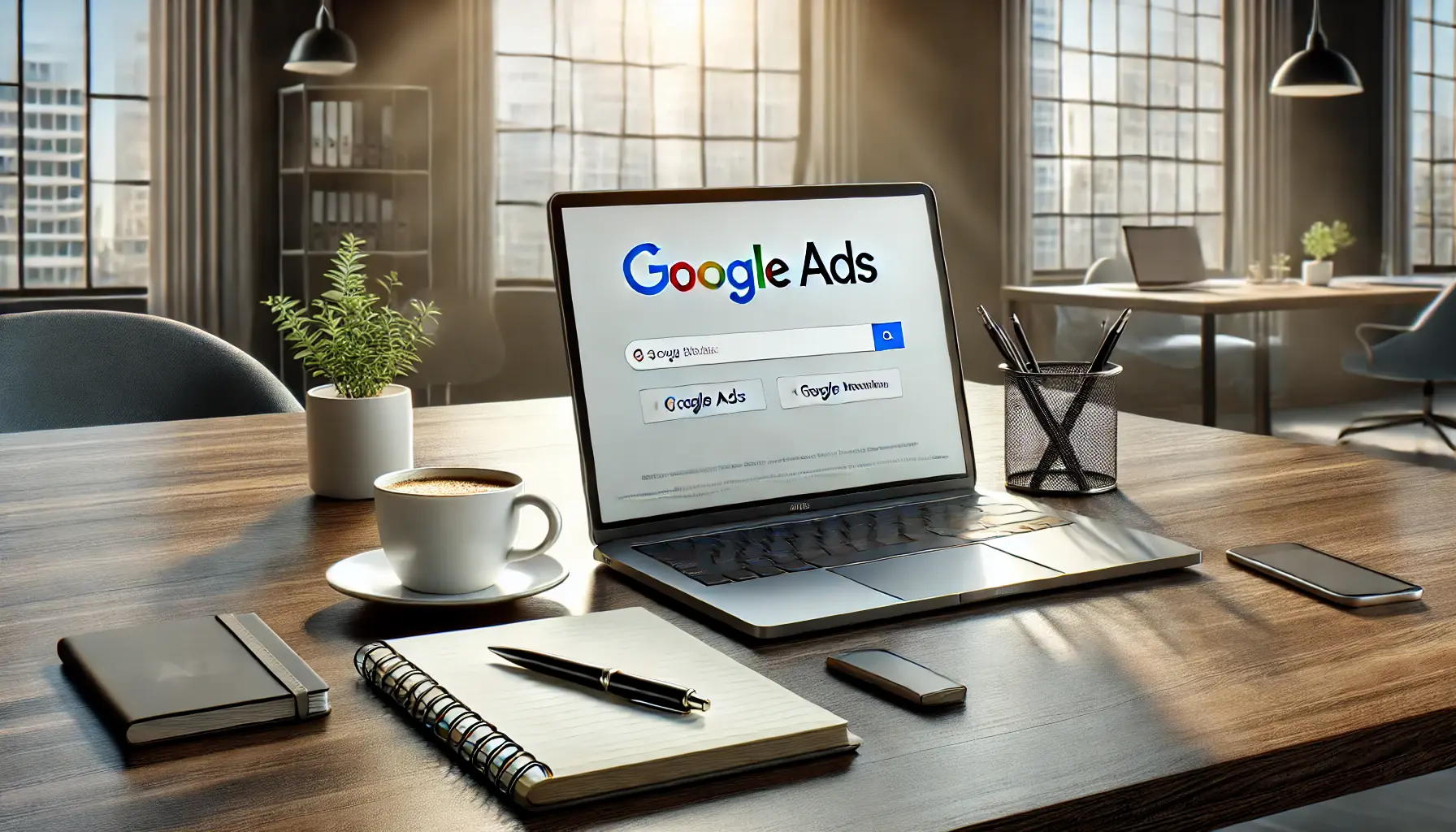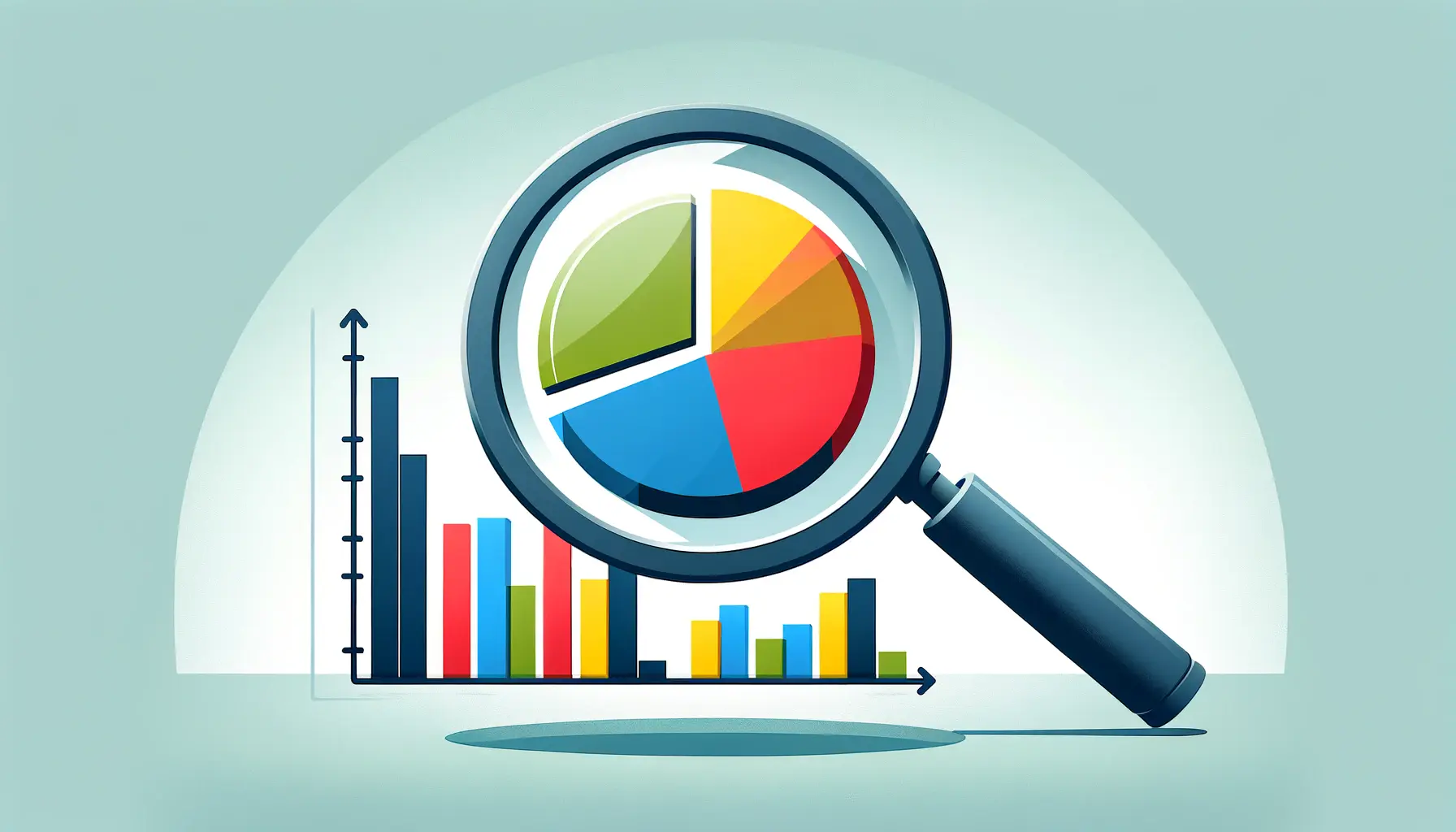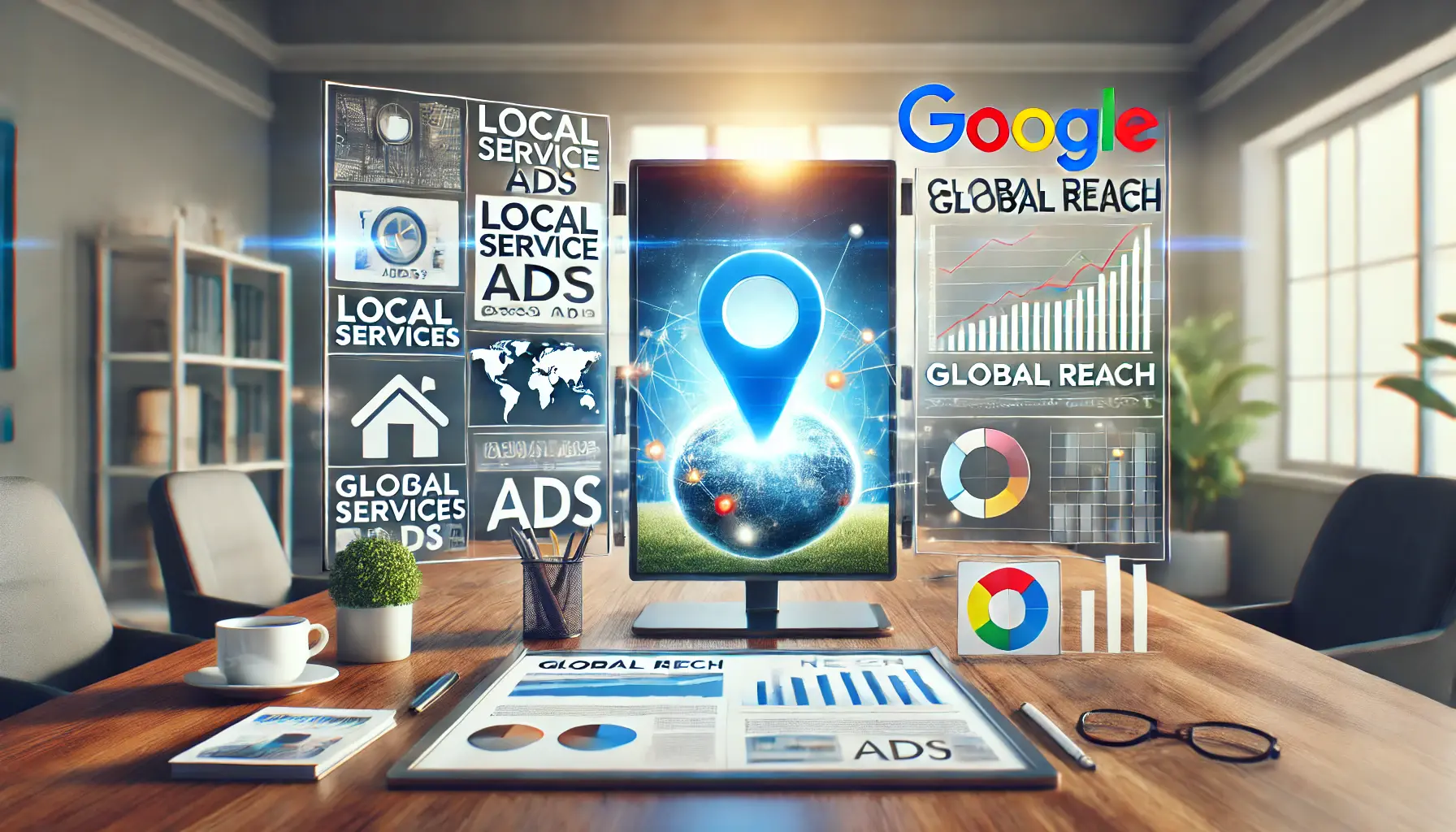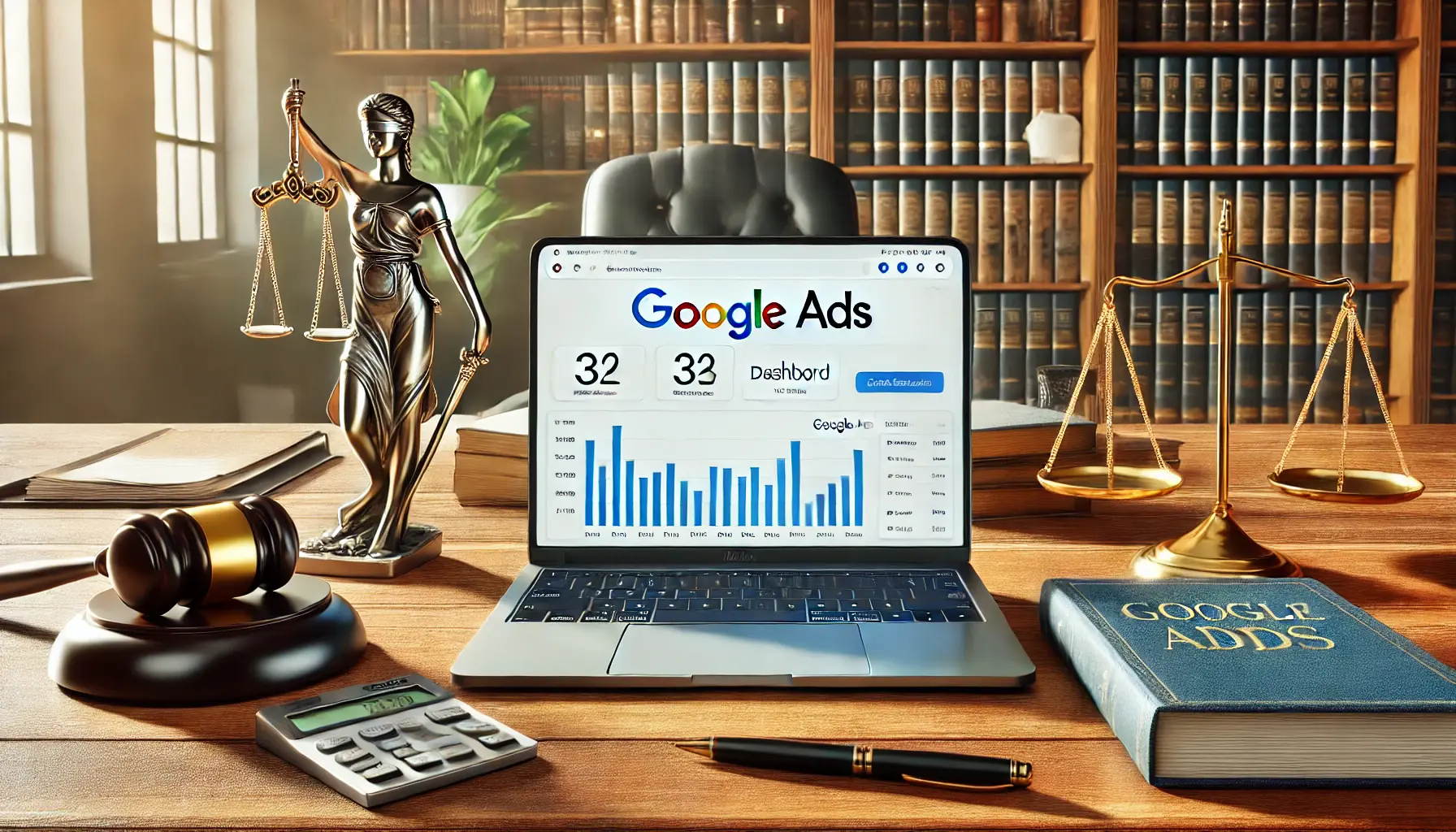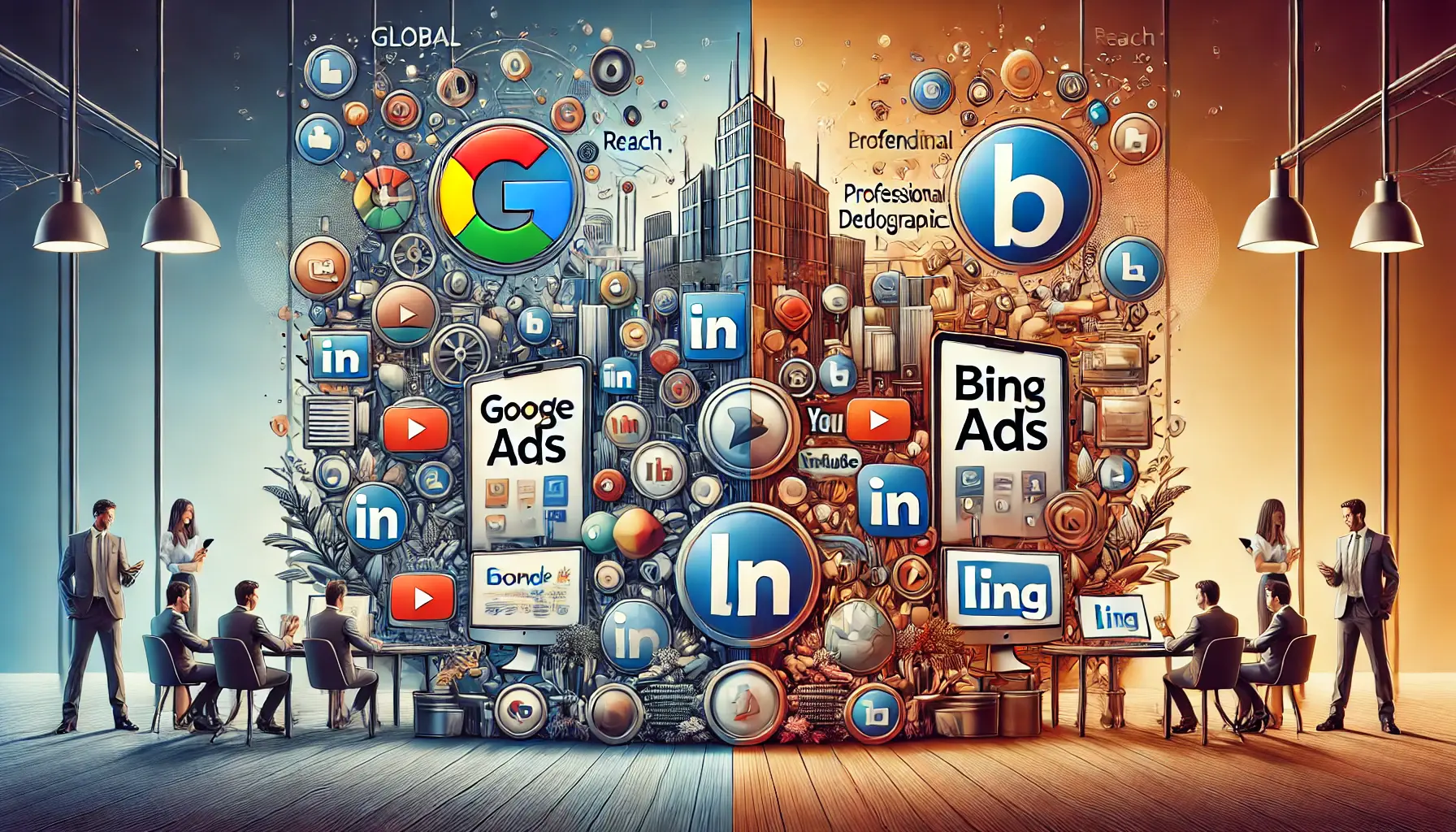Third-party agencies can be a godsend when it comes to managing Google Ads campaigns.
Partnerships with third-partyExternal agencies or consultants hired to manage specific tasks, not part of the hiring company. agencies let a business tap into specialized expertise, advanced tools, and proven strategies that elevate advertising performance.
But what does it really mean to work with third-party partners, and how can you make the most out of these collaborations?
This article will delve into the details of working with third-party partners in Google Ads, guiding you on how to choose, collaborate with, and maximize the potential of such partnerships.
- Understanding the Role of Third-Party Partners
- How Third-Party Partners Enhance Google Ads Campaigns
- Choosing the Right Third-Party Partner for Your Business
- How to Maximize ROI with Third-Party Partners
- Common Mistakes to Avoid When Working with Third-Party Partners
- Conclusion: Unlocking Success with Third-Party Partners in Google Ads
- Frequently Asked Questions About Working with Third-Party Partners in Google Ads
Understanding the Role of Third-Party Partners
Third-party partners in Google Ads are external agencies or consultants that businesses hire to manage, optimize, or provide insights into their advertising campaigns.
These partners bring a wealth of experience and often possess certificationsOfficial acknowledgments proving expertise or skills in a particular area, such as Google Ads., tools, and resources that may not be readily available to in-house teams.
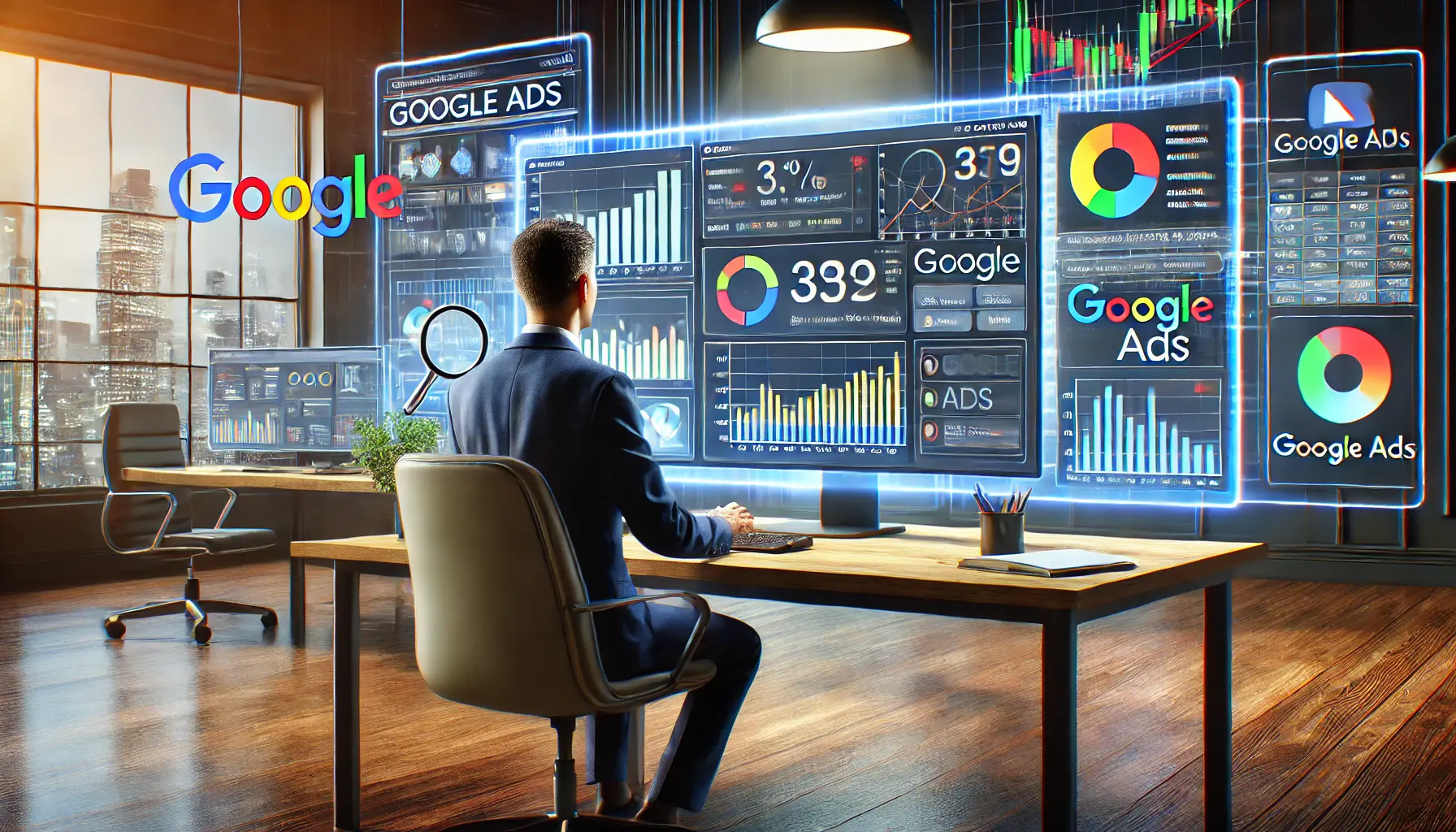
Expert insights: Third-party professionals navigating Google Ads for optimized campaign management.
What Are Third-Party Partners in Google Ads?
Third-party partners specialize in digital advertising, particularly in creating and managing Google Ads campaigns.
They are not affiliated directly with Google but have the skills to navigate its platform effectively.
These partners often include:
- Marketing agencies focusing on PPC campaigns.
- Freelance consultants with expertise in Google Ads.
- Technology firms offering software solutions for campaign optimization.
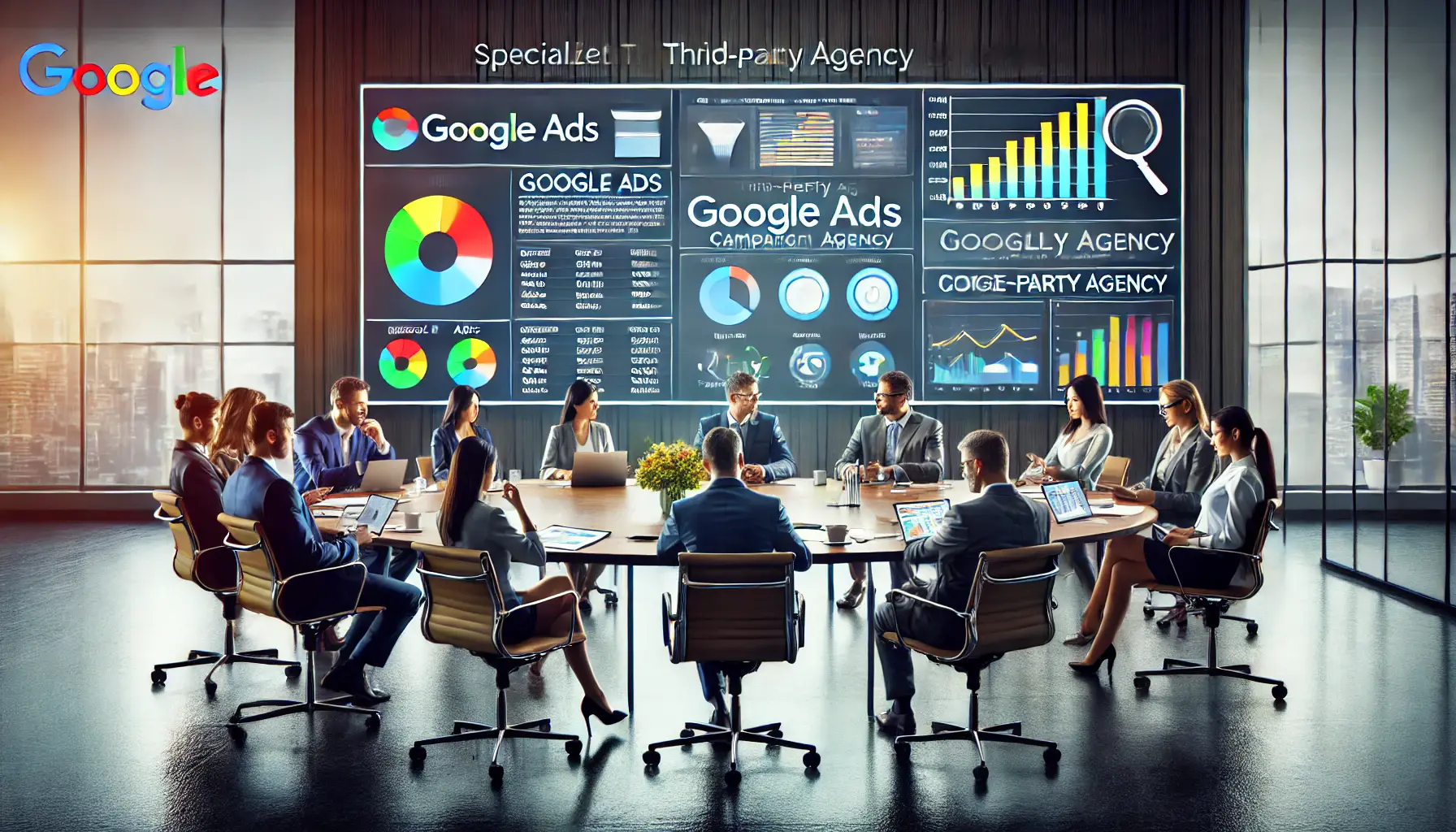
Strategic collaboration: Unlocking the potential of Google Ads with third-party agency expertise.
Benefits of Collaborating with Third-Party Agencies
Working with a third-party partner can bring added advantages to your ad campaigns in several ways, including:
- Expertise: Third-party partners are well-versed in using Google Ads and can help optimize your campaigns for maximum ROI.
- Advanced Tools: Many agencies use proprietary tools and software to analyze performance, conduct keyword research, and refine ad strategies.
- Time-Saving: By outsourcing campaign management, you can focus on other aspects of your business.
- Scalability: Third-party partners can help scale your campaigns efficiently as your business grows.

Navigating challenges: Addressing transparency and alignment issues in third-party collaborations.
Potential Challenges of Using Third-Party Services
While third-party partners can be incredibly beneficial, there are some challenges to be aware of:
- Cost: Hiring a third-party agency or consultant can be expensive, especially for smaller businesses.
- Lack of Transparency: Some partners may not provide full visibility into their methods or results.
- Misalignment of Goals: If the partner doesn’t fully understand your business objectives, the campaigns may not deliver the desired results.

Strategic selection: Evaluating expertise and alignment before choosing a third-party partner.
Key Considerations Before Choosing a Partner
Choosing the right third-party partner is crucial for success.
Here are some factors to consider:
- Certifications: Look for Google Ads Certified Partners to ensure credibility.
- Track Record: Review their portfolio and case studies to assess their expertise.
- Communication: Ensure they pledge regular updates and maintain open lines of communication with you.
- Budget Compatibility: Ensure that their pricing matches your budget.
Knowing the purpose of a third-party partner will set the wheels in motion to exploit their potential.
With the right partner, your Google Ads campaign can achieve unprecedented success, spurring the growth and profitability of your business.
Third-party partners bring expertise, tools, and strategies that can significantly enhance Google Ads campaigns. Their role is essential for businesses lacking in-house capabilities.
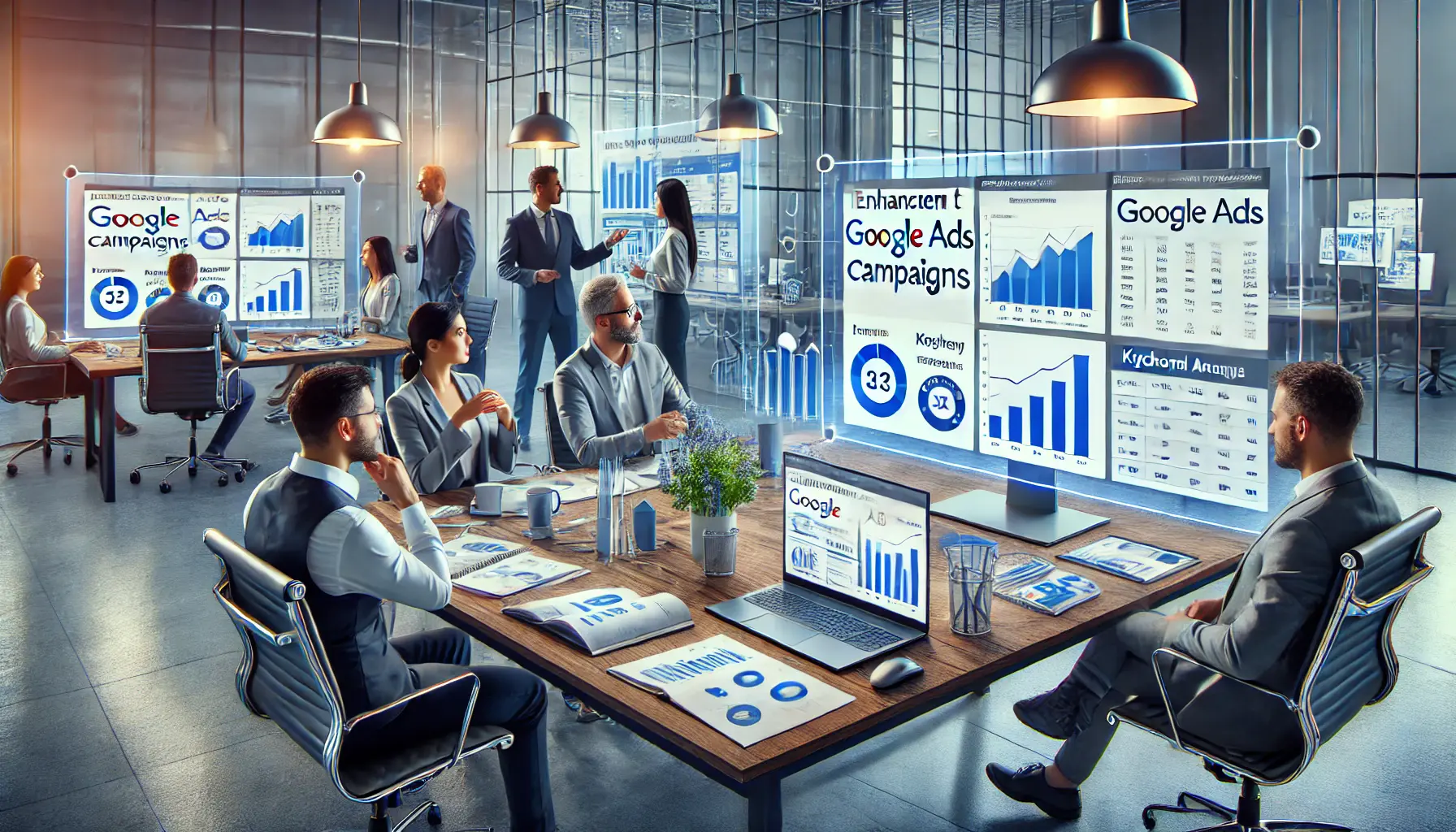
Teamwork and expertise: Elevating Google Ads campaigns with third-party optimization.
How Third-Party Partners Enhance Google Ads Campaigns
Collaborating with third-party partners can significantly boost the effectiveness of your Google Ads campaigns.
These partners bring specialized expertise, advanced tools, and innovative strategies that can elevate your advertising efforts to new heights.

Cutting-edge technology: Leveraging advanced tools for digital marketing optimization.
Advanced Tools and Techniques Used by Third Parties
Third-party partners often utilize cutting-edge tools and methodologies to optimize your campaigns.
For instance, they may employ advanced analyticsThe systematic computation and interpretation of data to gain insights. platforms to gain deeper insights into user behavior, allowing for more precise targeting.
Additionally, they might use automated bidding systems powered by machine learning to adjust bids in real-time, ensuring optimal ad placements.
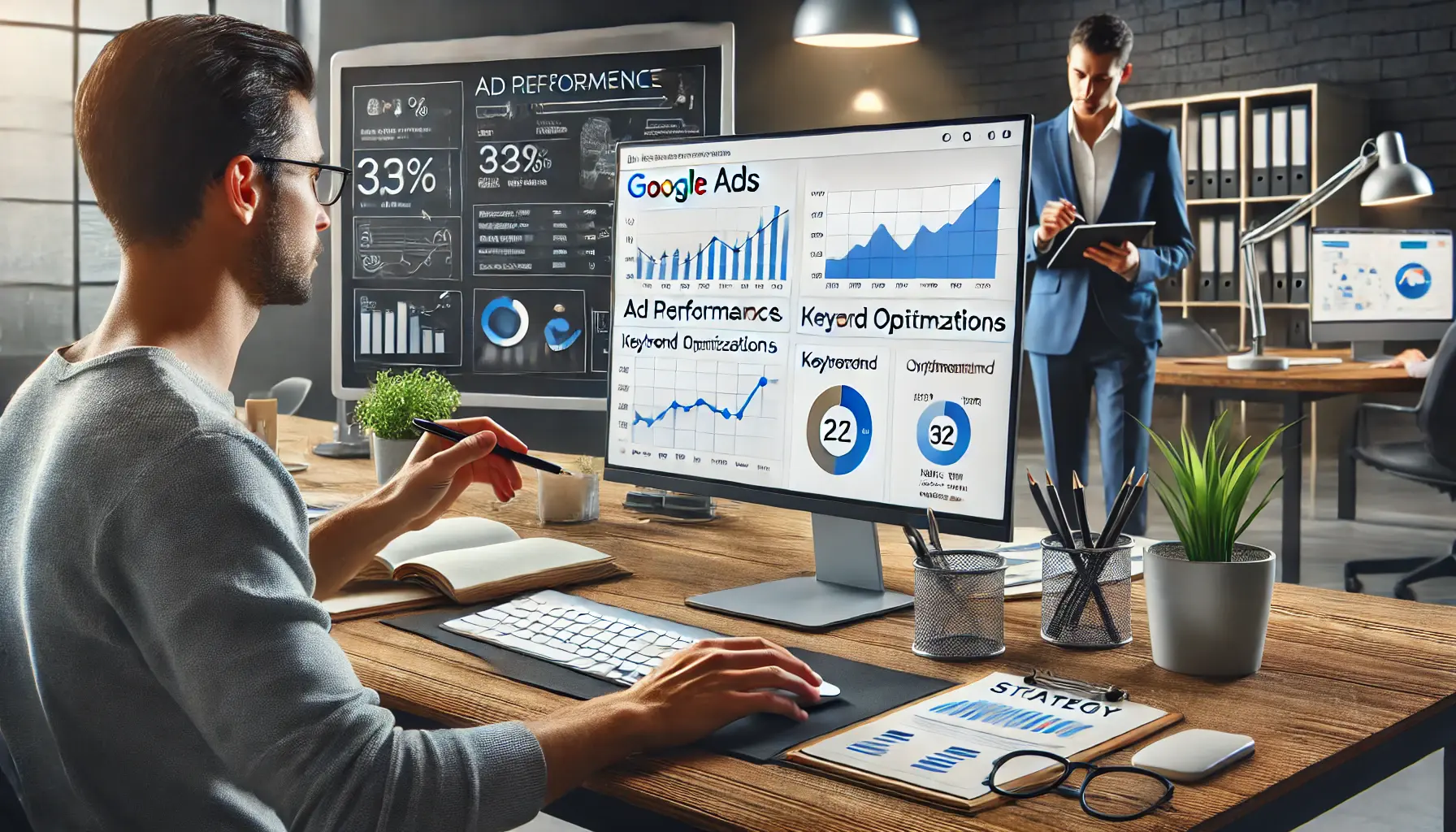
Data-driven precision: Enhancing campaign performance through targeted optimizations.
How They Optimize Campaign Performance
By leveraging their expertise, third-party partners can fine-tune various aspects of your campaigns.
This includes refining keyword strategies, improving ad copy, and enhancing landing pages to boost conversion rates.
Their experience enables them to implement best practices and avoid common pitfalls, leading to more efficient and effective campaigns.

Insightful analysis: Utilizing third-party analytics to drive informed decisions and strategies.
Leveraging Third-Party Analytics and Insights
Access to sophisticated analytics is a significant advantage of working with third-party partners.
They can provide detailed reports on campaign performance, user demographicsStatistical data relating to the population and particular groups within it., and engagement metrics.
This data-driven approach allows for informed decision-making and continuous improvement of your advertising strategies.

Achieving success: Showcasing the positive outcomes of strategic partnerships.
Case Studies: Successful Partnerships
Many companies have benefited considerably by partnering with third-party providers.
For example, businesses have reported increasing their ROIReturn on Investment, a measure of the profitability of an investment. and extending their reach through strategies specifically tailored to their needs by these professionals.
Such success stories demonstrate the promising outcomes of these collaborations.
Integrating third-party partners into your Google Ads strategy opens doors to advanced tools, specialized knowledge, and innovative techniques, which make a significant difference in campaign performance and business growth.
Utilizing third-party analytics and automated bidding systems can boost the efficiency and precision of Google Ads campaigns. These innovations help optimize ad performance.

Strategic evaluation: Selecting the ideal third-party partner for business growth.
Choosing the Right Third-Party Partner for Your Business
Selecting the appropriate third-party partner for your Google Ads campaigns is a critical decision that can significantly influence your advertising success.
To make an informed choice, consider the following steps:

Clarity in planning: Strategically identifying and aligning business needs and goals.
Identifying Your Business Needs and Goals
Clearly define your advertising objectives.
Are you focusing on brand awareness, website traffic, or sales conversions?
Having clear objectives will help you identify a partner whose expertise best fits the needs of your business.

Assessing credentials: Evaluating expertise and certifications for informed decision-making.
Evaluating Expertise and Certifications
Look for partners who are certified within Google’s Partner Programs.
These certifications indicate that the agency or consultant has demonstrated proficiency in managing Google Ads accounts.
Additionally, consider their experience in your industry, as familiarity with your market can lead to more effective campaign strategies.

Informed selection: Asking the right questions to evaluate potential partners.
Questions to Ask Potential Partners
When evaluating potential partners, consider asking the following questions:
- How much experience do you have running Google Ads campaigns for businesses like mine?
- Can you share any case studies or references from previous clients?
- How do you go about optimizing and tracking the performance of campaigns?
- What is your fee structure, and what additional costs might I incur?

Proceed with caution: Recognizing warning signs during partner evaluations.
Red Flags to Watch Out For
Beware of partners who:
- Promise guaranteed ad placements or positions: Ad positions are determined by an auction and change dynamically with each search.
- Are not transparent: Lack of transparency about their methods or failure to provide regular performance reports is a red flag.
- Push for quick decisions: Pressuring you to make a decision without giving you time to perform due diligence is a warning sign.
Carefully selecting your potential third-party partner ensures alignment with your business objectives and fosters a collaborative relationship.
This partnership can enhance your Google Ads campaigns and drive meaningful results for your business.
- Look for certifications and industry experience.
- Ensure transparency and communication to build trust.
- Evaluate their portfolio and client references for informed decision-making.

Strategic collaboration: Enhancing ROI through data-driven approaches and teamwork.
How to Maximize ROI with Third-Party Partners
To maximize the ROI of your Google Ads campaigns, working with third-party partners is essential.
Here are the strategies you may consider for effective returns:

Structured planning: Aligning expectations and goals for successful partnerships.
Setting Clear Expectations and Goals
The first step involves setting specific and measurable objectives for your advertising campaigns.
Clear expectations allow you and your third-party partner to collaborate effectively by aligning strategies to achieve desired outcomes.
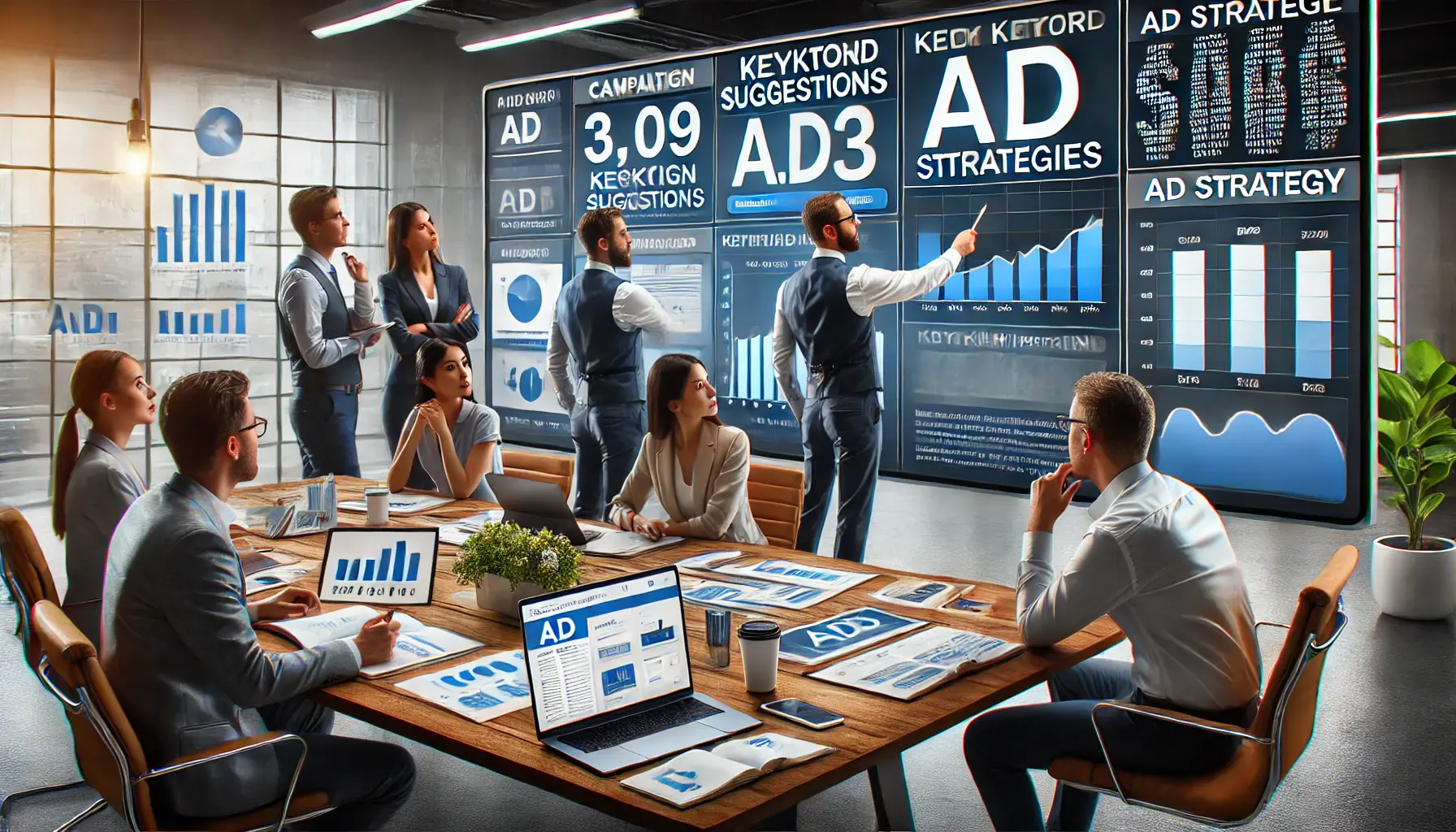
Creative teamwork: Developing effective ad strategies through collaboration.
Collaboration on Ad Strategies
Confer with your third-party partner to implement a full-scale ad strategy, including the following:
- Keyword Research: Identifying high-performing keywords relevant to your business.
- Ad Copy Development: Crafting compelling advertisements that resonate with your target audience.
- Targeting Parameters: Clearly defining audience segments based on demographics, interests, and behaviors.
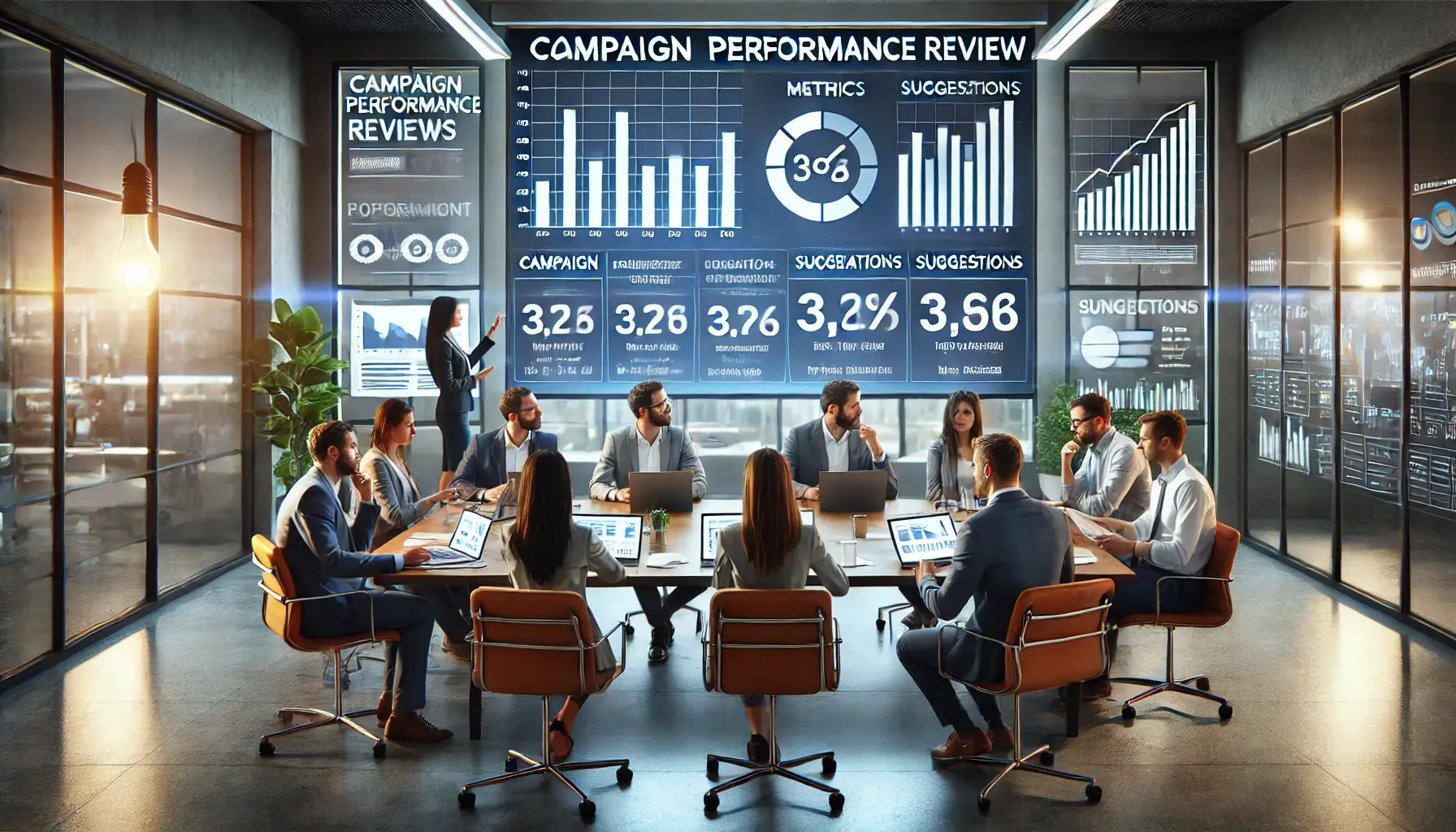
Continuous improvement: Conducting data-driven reviews for effective campaign adjustments.
Regular Performance Reviews and Adjustments
Implement a schedule for periodic performance evaluations of your campaigns.
Utilize analytics tools to assess key metrics such as click-through rates (CTR), conversion rates, and cost per acquisition (CPA).
Based on these insights, work with your partner to make data-driven adjustments to optimize performance.

Tracking success: Evaluating campaigns with key metrics for informed decision-making.
Measuring Success Through Key Metrics
Establish key performance indicators (KPIsKey Performance Indicators, metrics used to evaluate the success of an activity.) to gauge the effectiveness of your campaigns.
Common metrics to monitor include:
- ROAS (Return on Ad Spend): The revenue generated in relation to the amount spent on ads.
- Conversion Rate: The percentage of users who take a desired action after clicking on your ad.
- CPC (Cost per Click): The average cost incurred for each ad click.
By consistently observing these metrics, you can identify areas for improvement and work with your third-party partner to implement the necessary changes to achieve maximum ROI.
In general, a well-strategized partnership, based on firm objectives, joint planning, periodic performance analysis, and proper attention to key metrics, will significantly improve the efficiency and profitability of your Google Ads campaigns.
Clear objectives, collaboration on strategies, and performance reviews are key to achieving high ROI with third-party partners in Google Ads campaigns.

Avoiding pitfalls: Recognizing and addressing common mistakes in third-party partnerships.
Common Mistakes to Avoid When Working with Third-Party Partners
Engaging a third-party partner to manage your Google Ads campaigns can be highly beneficial.
However, certain drawbacks could prevent success.
Being aware of these common mistakes will help you maintain a strong partnership and achieve your advertising goals effectively.

Breaking down barriers: Overcoming the challenges of poor communication in professional collaborations.
1. Poor Communication
Effective communication is the cornerstone of any successful partnership.
Failing to establish clear channels can lead to misunderstandings and misaligned objectives.
To avoid this:
- Regular Updates: Schedule consistent meetings to discuss campaign progress and address any concerns.
- Transparent Reporting: Ensure your partner provides detailed reports on key performance metrics.

Clarity in roles: Avoiding confusion by defining responsibilities in team collaborations.
2. Not Defining Roles and Responsibilities
Ambiguity in roles may lead to duplication of effort or tasks not being performed at all.
Clearly outline responsibilities to streamline operations:
- Scope of Work: Clearly define the specific tasks each party will perform.
- Decision-Making Authority: Clearly state who has the final say on strategic decisions.

Prioritizing security: Addressing data privacy and compliance in professional collaborations.
3. Failure to Address Data Privacy and Compliance
Data privacy is crucial when working with third-party partners.
Neglecting complianceAdherence to laws, regulations, or guidelines. can lead to legal issues.
To ensure data security:
- Data Protection Policies: Verify that your partner abides by relevant data protection laws.
- Secure Data Handling: Ensure data is handled securely during storage and transit.

Tracking success: The risks of neglecting performance metrics in digital marketing campaigns.
4. Neglect of Performance Metrics
Assessing campaign efficiency is difficult without proper attention to performance metrics.
To avoid this mistake:
- Set Clear KPIs: Define key performance indicators to measure campaign success.
- Analyze Metrics Regularly: Use analytics tools to monitor and adjust campaign strategies.
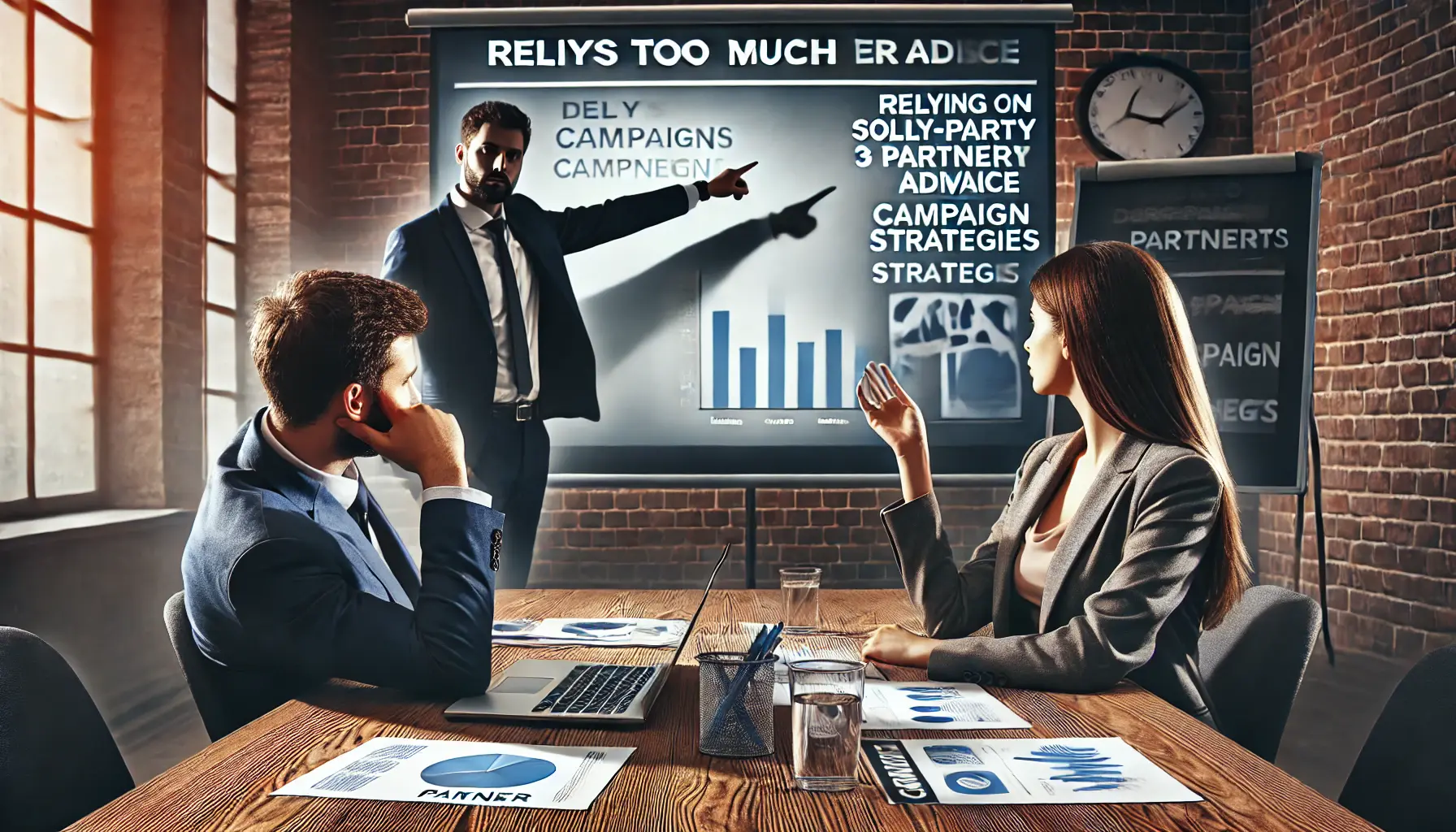
Active involvement: The risks of relying solely on a partner’s expertise without engagement.
5. Relying Solely on the Partner’s Expertise
While third-party partners bring valuable expertise, staying involved is crucial for success:
- Stay Informed: Keep up with Google Ads updates and best practices.
- Collaborative Approach: Work together to align strategies with your business objectives.
By avoiding these common mistakes, you can foster a successful collaboration with your third-party partner, leading to more effective and efficient Google Ads campaigns.
Avoid poor communication and lack of defined roles to ensure a smooth collaboration with third-party partners. Address data privacy and performance metrics diligently.
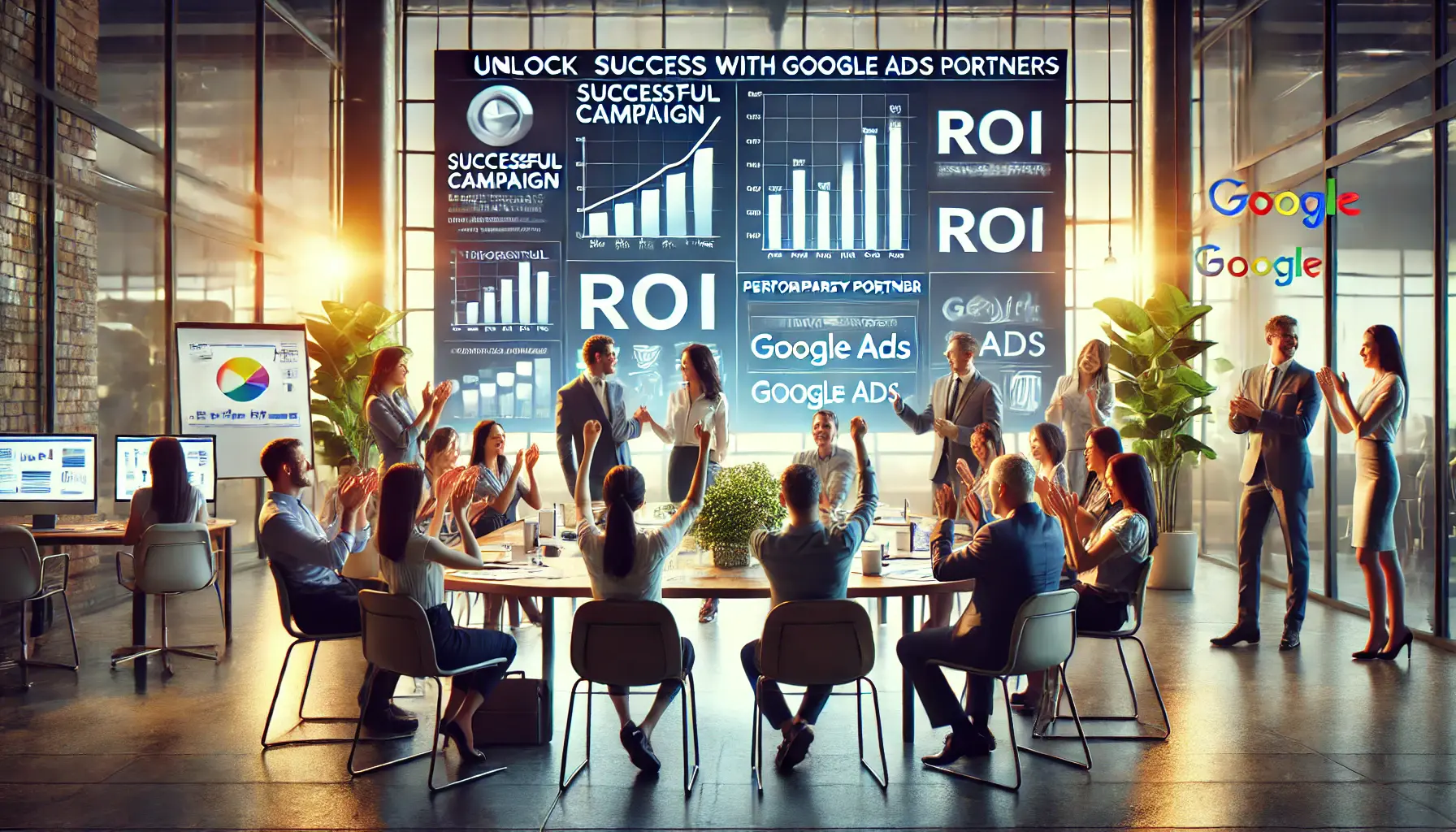
Collaborative success: Unlocking the full potential of Google Ads with third-party partnerships.
Conclusion: Unlocking Success with Third-Party Partners in Google Ads
Third-party partners play a vital role in elevating your Google Ads campaigns, offering expertise, tools, and insights that can significantly boost your advertising results.
By understanding their role and implementing strategic collaborations, you can achieve unparalleled success in your campaigns.

Reflecting on success: Evaluating key takeaways and lessons from third-party partnerships.
Key Takeaways from Working with Third-Party Partners
In this article, we have discussed valuable insights on partnering with third-party experts.
Here are the key takeaways:
- Their Role: With their skilled intervention and advanced mechanisms, they work to optimize your campaigns effectively.
- Value Addition to Campaigns: Using analytics and innovative strategies, they help in better targeting, enhancing ROI, and achieving more conversions.
- Choosing Wisely: Selecting the right partner involves evaluating certifications, expertise, and alignment with your business goals.
- Maximizing ROI: Collaboration, performance reviews, and tracking key metrics ensure sustained success.
- Avoiding Pitfalls: Clear communication, role definition, and staying involved are essential for maintaining an effective partnership.

Strategic planning: Building the foundation for a successful collaboration with third-party partners.
Steps to Build a Successful Collaboration
To ensure a productive and results-driven relationship with third-party partners, consider the following steps:
- Set clear and measurable goals to create alignment in strategies.
- Regularly communicate and maintain transparency.
- Keep track of performance metrics and adjust strategies if necessary.
- Stay current with trends and collaborate actively with your partner.

Reflecting on the journey: A moment of evaluation and conclusion after a successful collaboration.
Final Thoughts
Unlock innovation, precision, and efficiency by weaving third-party partner expertise into your Google Ads strategy.
These collaborations enable you to optimize your campaigns and empower your business to grow and thrive in an increasingly competitive digital landscape.
Ultimately, it is the strength of this partnership that can transform the way you approach advertising and help you consistently achieve desired results.
Unleash the power of third-party partners to turbocharge your Google Ads campaigns and secure your competitive edge.
Third-party partnerships can unlock unparalleled success in Google Ads campaigns. Their specialized expertise and tools are vital for achieving business growth and profitability.

Addressing key questions: A professional clarifying details about working with third-party partners in Google Ads.
Your campaigns can be managed by an agency specialized in Google Ads, check out our service page.
Frequently Asked Questions About Working with Third-Party Partners in Google Ads
Working with a third-party partner for Google Ads often raises several questions.
Below are some of the most common queries and their answers to help you better understand such collaborations.
Third-party partners are agencies or individual consultants certified by Google to manage and optimize your Google Ads campaigns on your behalf.
Look for the Google Partner or Premier Partner badge on their website, indicating they have met Google’s certification and performance requirements.
They offer services such as campaign setup, keyword research, ad creation, performance monitoring, and ongoing optimization to enhance your advertising results.
Yes, third-party partners typically charge a fee for their services in addition to your advertising spend.
Understanding their fee structure upfront is essential.
Request detailed monthly reports on costs, clicks, and impressions, and maintain open communication to stay informed about your campaign’s performance.
It’s advisable to work with one partner at a time to avoid overlapping efforts and ensure a cohesive strategy for your Google Ads campaigns.
Discuss your concerns directly with them.
If issues persist, consider reevaluating the partnership and exploring other certified third-party options.
While partners should adhere to data privacy laws, it’s crucial to ensure they follow best practices to protect your and your customers’ information.
Stay informed and engaged by regularly reviewing reports, providing feedback, and aligning on campaign goals to ensure the partnership’s success.

